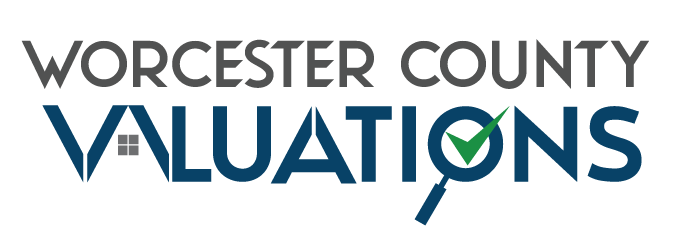Mortgage Appraisals are the Key to Home Financing
Mortgage Appraisals are the Key to Home Financing

When you’re in the market to buy a home, one of the most critical steps in securing financing is the mortgage appraisal. This seemingly small part of the home-buying process carries significant weight, influencing how much you can borrow and ensuring the value of the property matches the loan amount. In this article, we will delve into why mortgage appraisals are the key to home financing, explaining their importance, the process involved, and tips for navigating this essential step.
What Are Mortgage Appraisals?
Mortgage appraisals are professional evaluations of a property’s market value, conducted by certified appraisers. These appraisals are a crucial part of the home financing process, providing lenders with an unbiased estimate of the home’s worth. This ensures that the loan amount requested by the buyer aligns with the property’s actual value, protecting both the lender and the buyer from overpaying or under-financing the home.
Why Are Mortgage Appraisals Important?
Ensuring Fair Market Value
The primary purpose of mortgage appraisals is to establish the fair market value of a property. This helps lenders determine whether the loan amount requested is reasonable compared to the property’s value. Without an accurate appraisal, there’s a risk of lending more money than the home is worth, which could lead to financial losses if the borrower defaults on the loan.
Protecting Buyers and Lenders
Mortgage appraisals protect both buyers and lenders. For buyers, an appraisal ensures they are not overpaying for their new home. For lenders, it provides assurance that the property can serve as sufficient collateral for the loan. In case of default, the lender can sell the property to recover the loan amount, knowing its value has been accurately assessed.
Influencing Loan Approval
The outcome of mortgage appraisals significantly influences loan approval. If the appraisal value comes in lower than the purchase price, buyers may need to renegotiate the price with the seller, bring more money to the table, or potentially seek a different property. A high appraisal, on the other hand, can smooth the path to loan approval, as it reassures the lender of the property’s worth.
The Mortgage Appraisal Process
Selecting an Appraiser
The appraisal process begins with the selection of a qualified appraiser. Lenders usually choose the appraiser, but they must be an independent third party with no vested interest in the transaction. This ensures an unbiased and accurate evaluation of the property’s value.
Conducting the Appraisal
During the appraisal, the appraiser conducts a thorough inspection of the property. They assess various factors, including the home’s size, condition, location, and features. The appraiser will also compare the property to similar homes in the area that have recently sold, known as comparables or “comps.”
Key factors considered during mortgage appraisals include:
- Property Size and Condition: The overall size, layout, and condition of the home, including any improvements or upgrades.
- Location: The neighborhood, proximity to amenities, and overall desirability of the area.
- Market Trends: Recent sales data of comparable properties in the area, reflecting current market conditions.
Compiling the Appraisal Report
After the inspection, the appraiser compiles their findings into a detailed report. This report includes the property’s estimated market value, along with supporting data and analysis. The appraisal report is then sent to the lender and is a critical component of the loan approval process.
Tips for Navigating Mortgage Appraisals
Prepare Your Home
If you’re selling your home or refinancing, ensure your property is in its best possible condition before the appraisal. Small improvements, such as fresh paint, landscaping, and minor repairs, can positively impact the appraisal value.
Provide Relevant Information
Provide the appraiser with any relevant information that could affect the property’s value, such as recent upgrades, renovations, or unique features. This information can help the appraiser make a more accurate assessment.
Understand the Process
Understanding how mortgage appraisals work can alleviate some of the stress associated with the process. Knowing what to expect, how the value is determined, and the steps involved can help you navigate the appraisal with confidence.
Review the Appraisal Report
Once the appraisal is complete, review the report carefully. If you believe there are errors or discrepancies, you have the right to challenge the appraisal. Providing additional comps or information can sometimes lead to a revised appraisal.
Mortgage appraisals are the key to home financing, ensuring that the loan amount requested by the buyer is justified by the property’s actual value. By protecting both buyers and lenders, providing an unbiased estimate of the home’s worth, and influencing loan approval, mortgage appraisals play a vital role in the home-buying process. Understanding their importance, preparing for the appraisal, and knowing how to navigate the process can make your journey to homeownership smoother and more successful. So, the next time you find your dream home, remember that a mortgage appraisal is your best ally in securing the right financing for your investment.
When it comes to choosing a professional estate appraisal company, experience matters, give us a call today to learn how we can help you.

